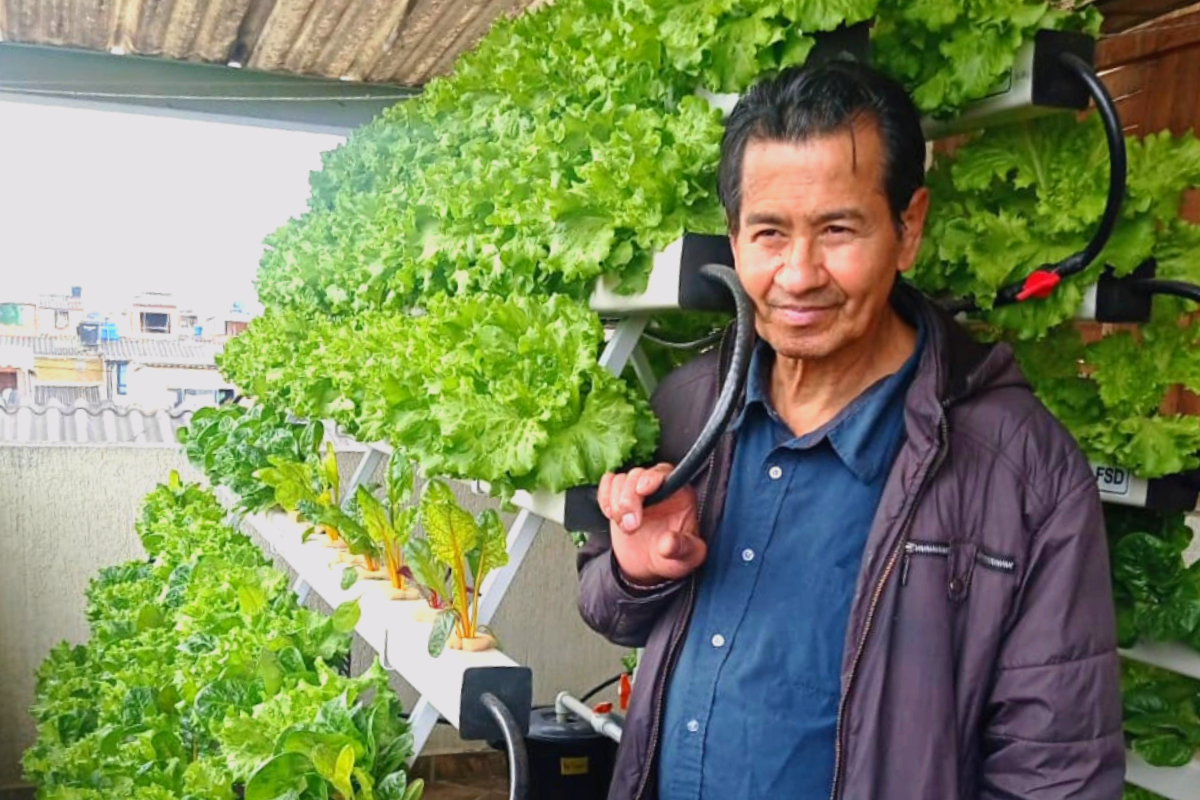Every year, civilians are killed or maimed by accidental explosions in Colombia. Nearly six decades of civil war have left the country littered with landmines and unexploded ordnance. The aftermath of accidental explosions disrupt the daily life of victims and their families for the remainder of their lives. In addition to injuries and amputations, multiple operations and rehabilitation, in most cases, survivors find themselves unemployed, isolated and sometimes perceived as a burden by society.
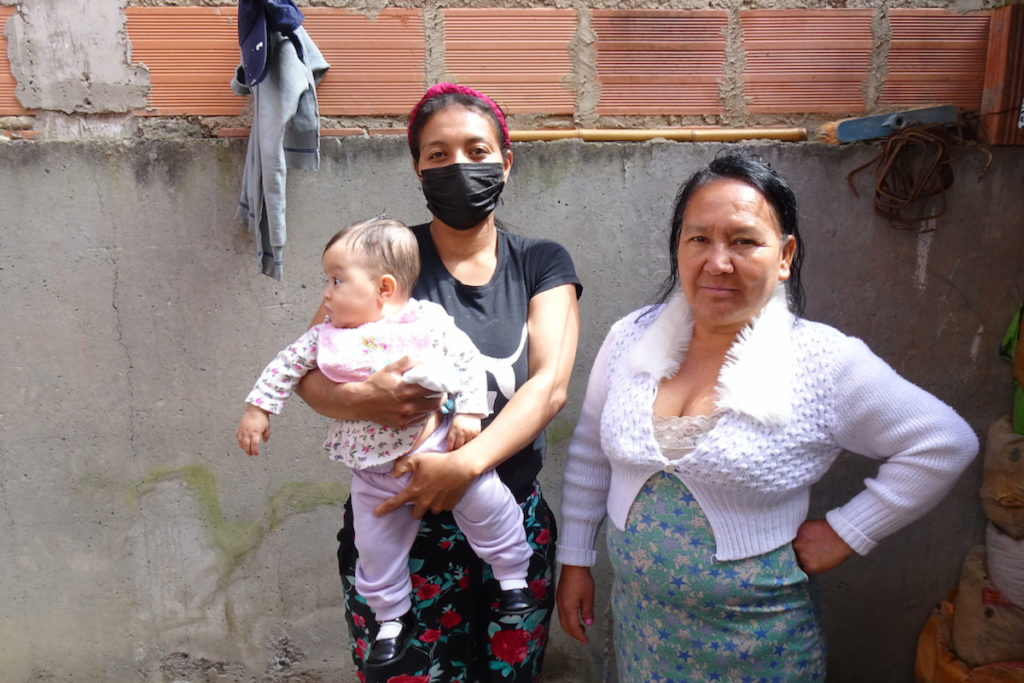
Ismaelina Burbano (right), a mine accident survivor who fled from armed conflict, lives with her cousin and her cousin’s family in Bogotá.
In 2022, FSD set up a project to support the socio-economic reintegration of mine victims through the establishment of urban vegetable gardens. The concept: FSD provides the necessary equipment and hydroponic structures, facilitates the installation on them on balconies of the survivors, and trains survivors in the cultivation of various vegetables and herbs so that they can then sell them at local markets and restaurants.
Andrés Jaramillo, in charge of FSD’s victim assistance project in Bogotá, takes measurements of Ismaelina’s balcony.

In July, FSD identified and visited a number of potential beneficiaries in the Bogotá area and studied the feasibility of setting up crops on their balconies. The design of the plant pyramids and their adaptation to the size of the beneficiaries’ available space could then begin. This was done in coordination with the Colombian government’s Victims’ Unit and the local NGO SEREZA.
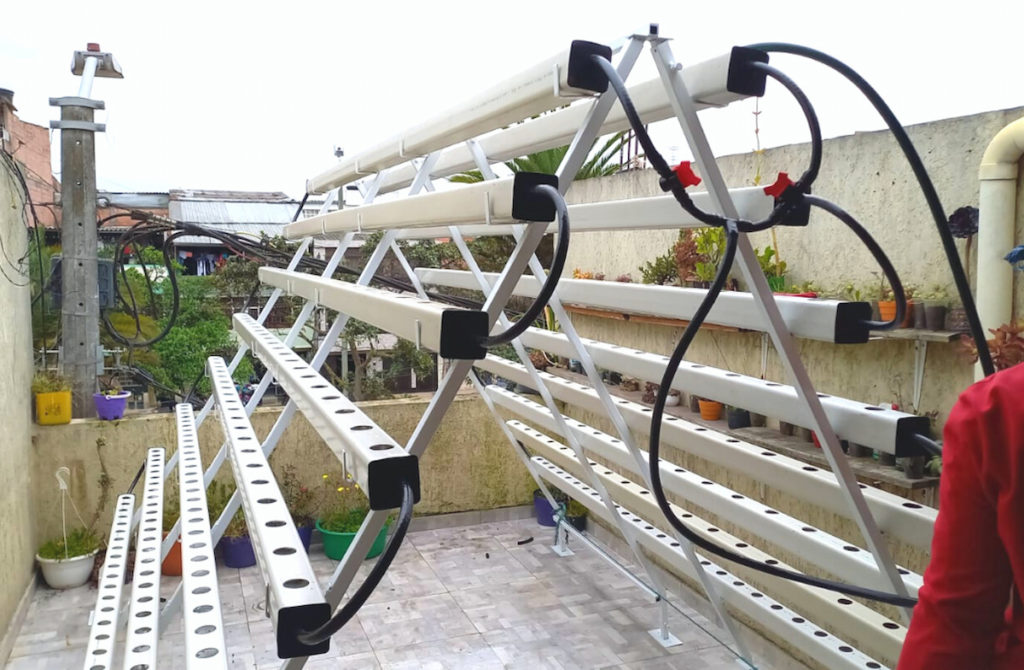
This hydroponic structure makes it possible to grow plants above ground with limited space by providing the plants’ roots with essential minerals and nutrients via a direct feed of water containing food.
In August, urban vegetable gardens were set up for five beneficiaries. Among them was Jair Rivera, who lost his right arm, part of his left hand and an eye in a mine accident. At the time, Jair was a quinoa and plantain farmer in the Tolima region, an activity he can no longer carry out today. More than 350 salad plants were mounted on a specially designed structure for him to use despite his disability.
Yaneth Celis decided to grow several varieties of Asian lettuce.
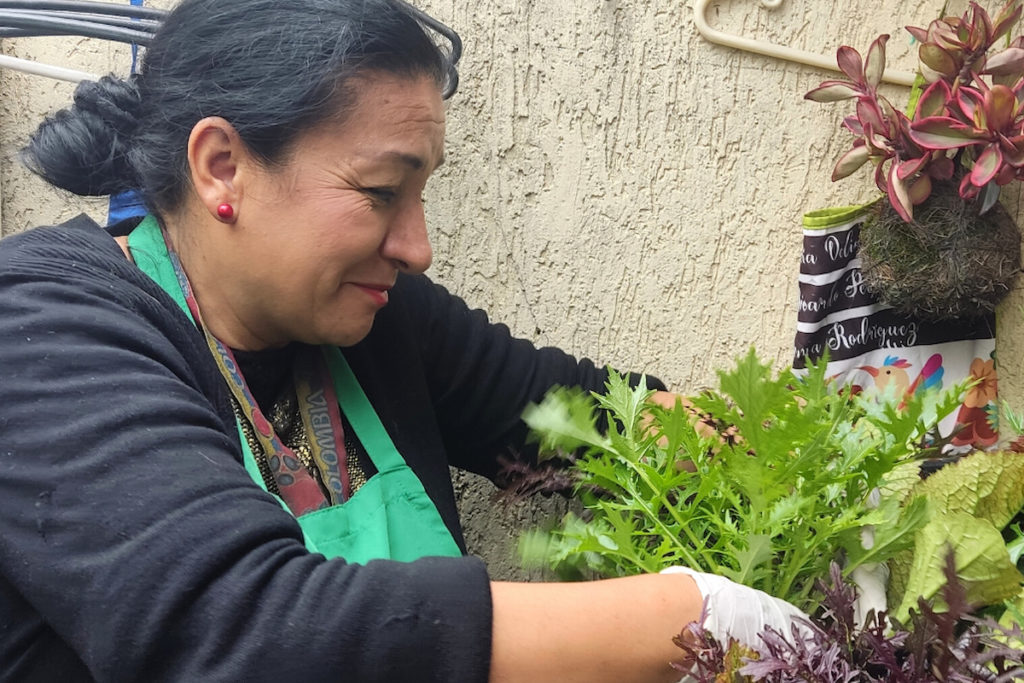
During September and October, the beneficiaries took care of their urban vegetable gardens according to the instructions given. Our teams made further visits to ensure the viability of the plants and to check the hydroponic systems. By November, it was already time for the beneficiaries to harvest.
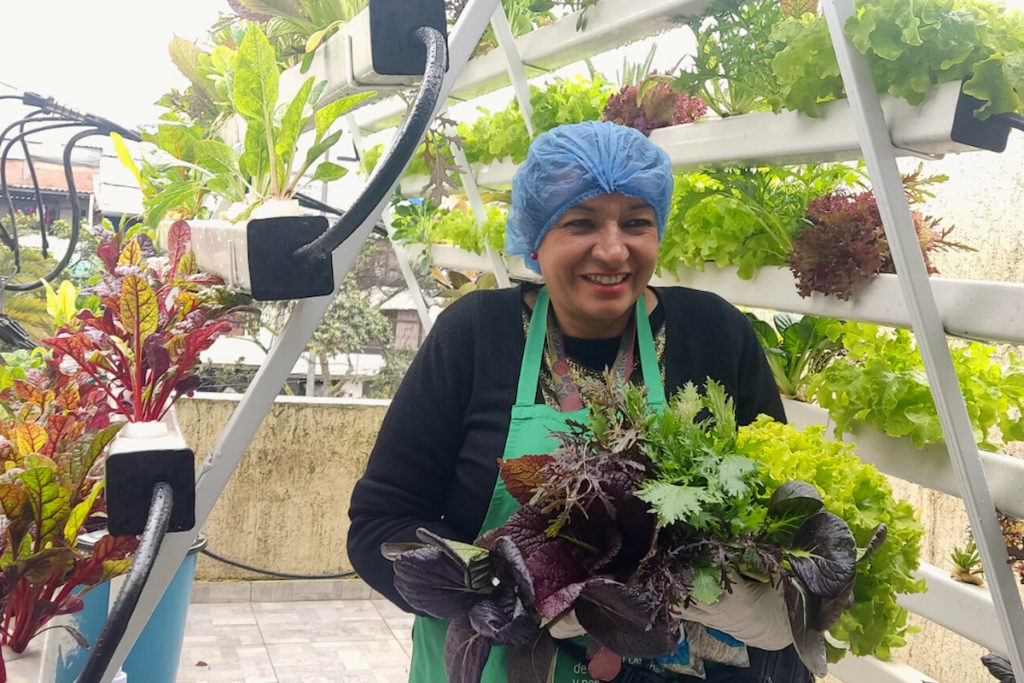
Yaneth Celis is delighted with her harvest. She has made an agreement with a local restaurant to become their regular supplier of these salad plants.
Yaneth Celis’ results exceeded all expectations: she was able to harvest her first crop of mustard greens, Chinese cabbage and misuna, a Japanese cabbage, in early November, and a second at the end of the month. Everything was sold within days and Yaneth was asked by the Chamánico restaurant to regularly supply them with the salad crops.
Marketed under the brand name FRESCA (Familias Resilientes al Conflicto Armado), the salad crops are sold by the beneficiaries in markets and to restaurants in the neighbourhood.
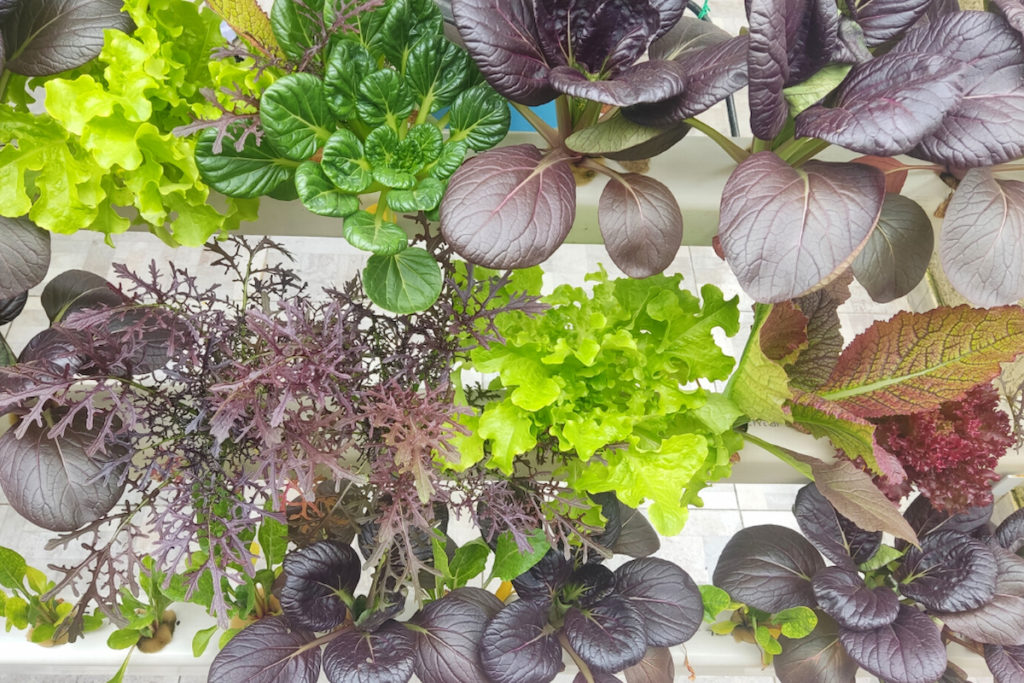
In order to help these mine survivors to promote their products and earn a stable income from this new activity, FSD created the brand FRESCA (Familias Resilientes al Conflicto Armado), under which the salad crops and herbs are sold. Given the success of this pilot project, the aim is now to extend it to more beneficiaries in Bogotá, and to develop a similar strategy through community gardens in rural areas of the country.

